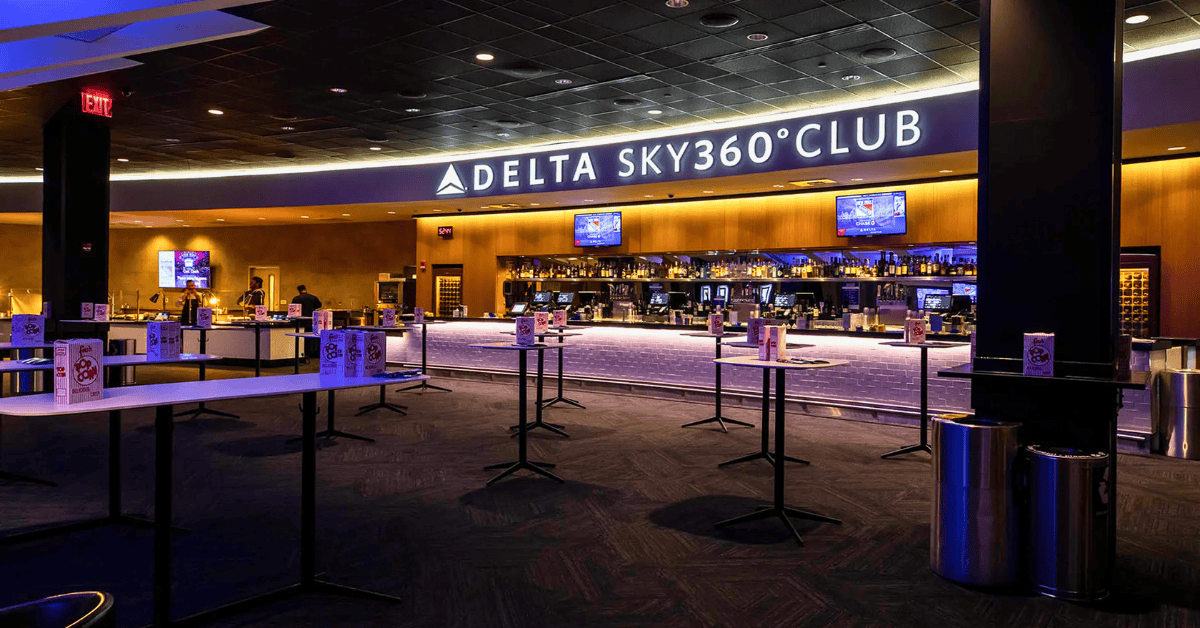
9 Award-Winning Spa Hotels and Resorts That Elevate Group Getaways
Wellness isn’t just a personal pursuit anymore—it’s shaping the way we plan group travel. From corporate off-sites to girlfriends’ getaways, the most memorable retreats often include opportunities to recharge body and mind. Choosing a hotel with an award-winning spa can elevate your group getaway and transform a simple trip into an immersive experience, giving attendees space to reset, reconnect, and return refreshed.
Whether your group thrives on yoga and mindfulness, long hikes in nature, or a luxurious soak with a view, these nine award-winning spa hotels and resorts will elevate your group getaway with luxurious accommodations and unforgettable wellness.

In a city known for bright lights and nonstop energy, The Venetian offers groups a surprising balance of spectacle and sanctuary. At its heart is the Canyon Ranch Spa + Fitness, one of the largest spas in North America at 134,000 square feet. Guests can explore the Aquavana hydrothermal circuit—complete with steam rooms, experiential rain showers, and cooling chambers—or choose from more than 100 spa and wellness services. With 90 treatment rooms, yoga and fitness studios, and personalized nutrition programs, the spa brings world-class wellness to the Strip.
For planners, The Venetian is equally impressive on the meetings side. The resort offers 1.9 million square feet of event and convention space, including 350+ meeting rooms and the Venetian Expo Center, making it one of the most flexible properties in the U.S. After a day of keynotes and breakouts, attendees can recharge in the spa or retreat to one of 4,000+ suites. It’s a destination that makes wellness an essential part of the Las Vegas experience.
-
- Awards & Recognition: Forbes Four-Star Spa & Condé Nast Traveler Readers’ Choice #1 Las Vegas Hotel
- Rooms: 4,000+ suites (plus adjoining Palazzo tower).
- Meeting Space: 1.9 million sq. ft. of event space, 350+ meeting rooms.
- Wellness Highlights: 134,000 sq. ft. spa, Aquavana hydrothermal circuit, 100+ wellness services, yoga and fitness programs, 90 treatment rooms.

Tucked into the Pocono Mountains, The Lodge at Woodloch offers a boutique, adults-only experience with a 40,000-square-foot spa at its center. Known for its serene setting and world-class amenities, this resort pairs classic wellness programming with unique activities like art and cooking classes. Guests can enjoy Himalayan salt saunas, an ice “snow room,” and hydrotherapy pools in between yoga, aqua fitness, and meditation sessions.
The all-inclusive stay ensures that every guest feels immersed in wellness from arrival to departure. With just 59 rooms, the Lodge is perfect for leisure groups such as girlfriend getaways or adult family retreats. It also appeals to intimate executive groups seeking a relaxed, off-the-grid meeting space.
-
- Awards & Recognition: Travel + Leisure 2024 World’s Best Award
- Rooms: 59 luxury rooms with private verandas.
- Meeting Space: Intimate and best suited for small retreats.
- Wellness Highlights: Silent relaxation room, holistic therapies, dozens of included classes.

For groups that want wellness without the ultra-luxury price tag, Civana provides a welcoming option. This Sonoran Desert resort offers more than 100 complimentary classes per week, ranging from yoga and sound healing to nutrition and personal growth. The spa features a hydrotherapy circuit, meditation areas, and treatment options that combine traditional and innovative techniques.
Groups will appreciate the casual, health-focused atmosphere and customizable activities. While the property doesn’t have massive meeting space, it’s a great fit for wellness retreats, incentive trips, or executive leadership gatherings that want to balance productivity with personal renewal.
-
- Awards & Recognition: Spa & Wellness Travel & Hospitality Award Winner for 2024/25
- Rooms: 176 guest rooms and suites.
- Meeting Space: Limited, best for wellness groups.
- Wellness Highlights: Hydrotherapy circuit, Reiki, sound healing, meditation spaces.

The Omni Grove Park Inn combines historic charm with a 43,000-square-foot spa experience that draws visitors from around the globe. Known for its cavernous mineral pools, therapeutic waterfalls, and eucalyptus steam rooms, the spa itself feels like a hidden sanctuary in the Blue Ridge Mountains. Guests can also enjoy outdoor recreation such as golf and hiking trails.
For planners, Omni Grove Park Inn offers the best of both worlds: a resort with enough meeting space to host major conferences alongside a spa that delivers deep relaxation. The mountain setting makes it a natural choice for groups seeking inspiration and renewal.
-
- Awards & Recognition: Ranked among the World’s Top Spa Resorts
- Rooms: 500+ guest rooms.
- Meeting Space: Over 86,000 sq. ft. of event space.
- Wellness Highlights: Cavernous mineral pools with underwater music, outdoor whirlpools, therapeutic waterfalls.

This Victorian castle overlooking the Hudson Valley has been welcoming groups for over 150 years. Mohonk’s award-winning spa complements the property’s 85 miles of hiking trails and lakefront activities, creating a destination where wellness is part of every experience. Daily yoga, guided meditation, and even forest bathing are part of the programming.
Mohonk is particularly group-friendly, with 14 meeting rooms and options for full-property buyouts. It’s equally popular with corporate retreats and leisure gatherings like family reunions. Attendees will appreciate activities ranging from cliffside yoga to axe throwing, blending wellness with adventure in a unique historic setting.
-
- Awards & Recognition: Historic Spa Recognition & 150 Years of Wellness Tradition
- Rooms: 262 guest rooms, suites, and cottages.
- Meeting Space: 14 meeting rooms, plus extensive outdoor options.
- Wellness Highlights: Forest bathing, mindfulness workshops, outdoor adventures.

Located on 102 acres of oceanfront property just outside Los Angeles, Terranea is as scenic as it is versatile. Its spa features ocean-view treatment rooms and creative programming such as full moon yoga and meditation retreats. Groups can also enjoy seaside cycling, guided nature walks, and the resort’s signature “Nature’s Gym” bootcamp on the beach.
With over 135,000 square feet of event space, Terranea is a top choice for corporate retreats and incentive travel. At the same time, leisure groups enjoy the resort’s pools, restaurants, and annual Seaside Yoga Festival. Few properties combine coastal beauty, expansive amenities, and wellness programming as seamlessly as Terranea.
-
- Awards & Recognition: Iconic West Coast Spa Resort
- Rooms: 582 rooms, suites, and casitas.
- Meeting Space: 135,000+ sq. ft. of event space.
- Wellness Highlights: Ocean-view spa, seaside yoga, goat yoga, Seaside Yoga Festival.

In Virginia’s wine country, Salamander Resort blends equestrian adventure with five-star wellness. Its Forbes-rated spa features unique offerings like Tibetan singing bowl therapy, aqua yoga, and CBD-infused rituals. Groups can also take part in horseback riding, zip-lining, and farm-to-table dining experiences that balance luxury with nature.
For corporate groups, Salamander offers more than 12,000 square feet of meeting space plus tailored team-building activities like cooking classes and scavenger hunts. Leisure groups will enjoy the same balance of activity and relaxation in a refined countryside setting.
-
- Awards & Recognition: Forbes Five-Star Award
- Rooms: 168 guest rooms and suites.
- Meeting Space: 30,000 sq. ft. of flexible venues.
- Wellness Highlights: Equine communication, Tibetan bowl therapy, outdoor yoga terrace.

For groups that want complete privacy and immersion, Castle Hot Springs delivers a boutique luxury experience. With just 30 rooms and natural hot springs that have been used for centuries, the resort feels like a hidden oasis in the desert. Wi-Fi and TV access are intentionally limited, making it an ideal destination for digital detox retreats.
Beyond soaking in mineral-rich pools, guests can enjoy activities like paddleboard yoga, mindful stargazing, and farm-to-table dining. Corporate leadership groups and private buyouts are common, as the intimate setting fosters authentic connection.
-
- Awards & Recognition: Named one of the World’s Most Luxurious Wellness Resorts
- Rooms: 31 bungalows and cabins. groups of up to 5,000
- Meeting Space: Minimal; best for buyouts or executive retreats.
- Wellness Highlights: Natural hot springs, farm-to-table cuisine, stargazing, open-air spa cabanas.

Caesars Palace is one of the most iconic names in Las Vegas, blending the energy of the Strip with Roman-inspired grandeur. For groups, the resort offers an unbeatable mix of large-scale meeting capacity and memorable wellness experiences. The Qua Baths & Spa is the centerpiece, with Roman baths, cascading waterfalls, and mineral pools that create a sanctuary away from the casino floor. Guests can also experience an Arctic Ice Room, herbal steam rooms, and a wide menu of restorative spa treatments.
With more than 300,000 square feet of meeting and event space, Caesars is built to handle conferences, conventions, and incentive trips of nearly any size. Its flexible ballrooms and breakout spaces make it just as suitable for corporate training as for lavish galas. After a full day of meetings or networking, attendees can retreat to the spa’s calming atmosphere—an experience that underscores the dual personality of Caesars: high-energy events paired with moments of restorative calm.
-
- Awards & Recognition: Qua Baths & Spa recognized among premier Las Vegas spa experiences
- Rooms: Thousands of guest rooms and suites across multiple towers.
- Meeting Space: 300,000 sq. ft. of event and convention space.
- Wellness Highlights: Roman baths, mineral pools, Arctic Ice Room, steam and sauna experiences, signature spa rituals.
Conclusion
Wellness has become a cornerstone of modern group travel, turning hotels into more than just a place to stay—they become places to restore and reconnect. Whether your group seeks a digital detox, equestrian adventures, or oceanfront yoga, these eight resorts deliver unforgettable experiences alongside award-winning spas.
Ready to plan your next group retreat? Explore your options with GroupSync to compare properties, check availability, and book with confidence.
Planners save up to 60% off hotel room rates GroupSync™
Get access to the best rates with risk-free cancellation.



















































